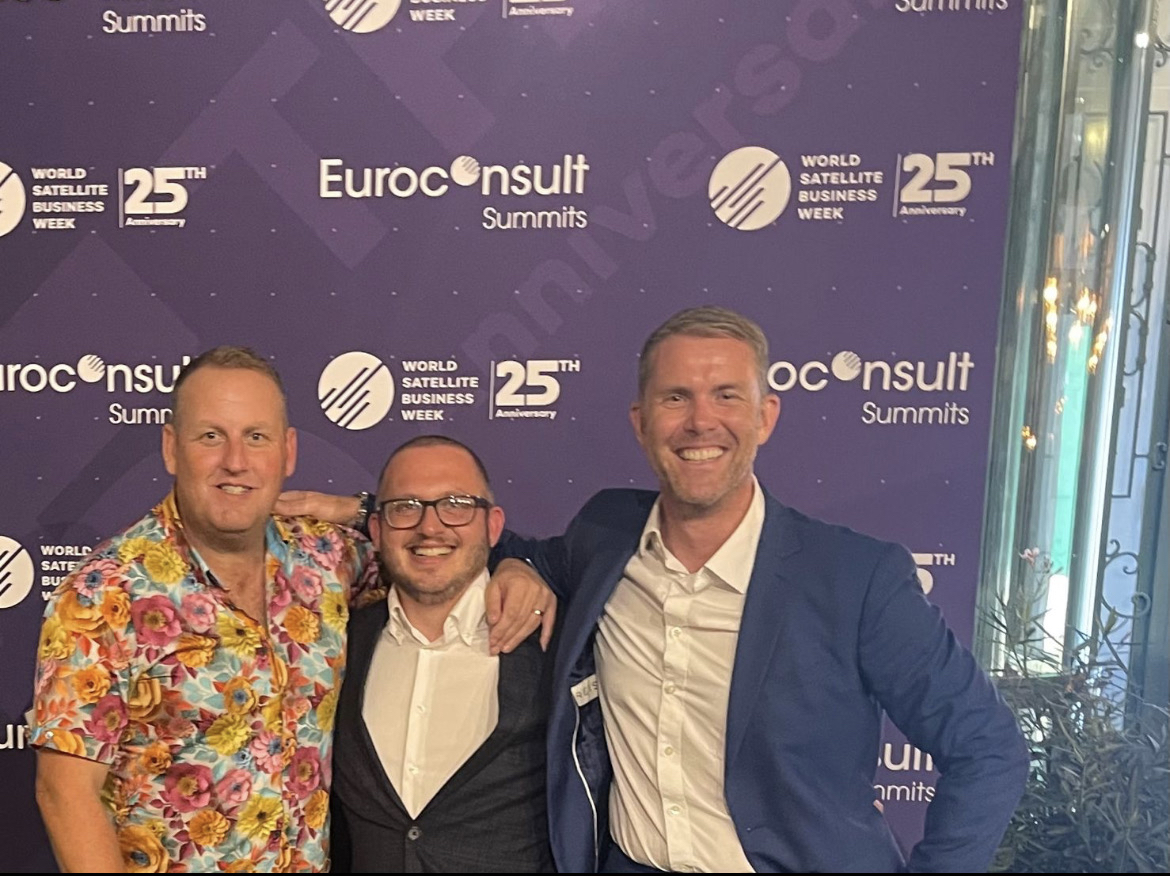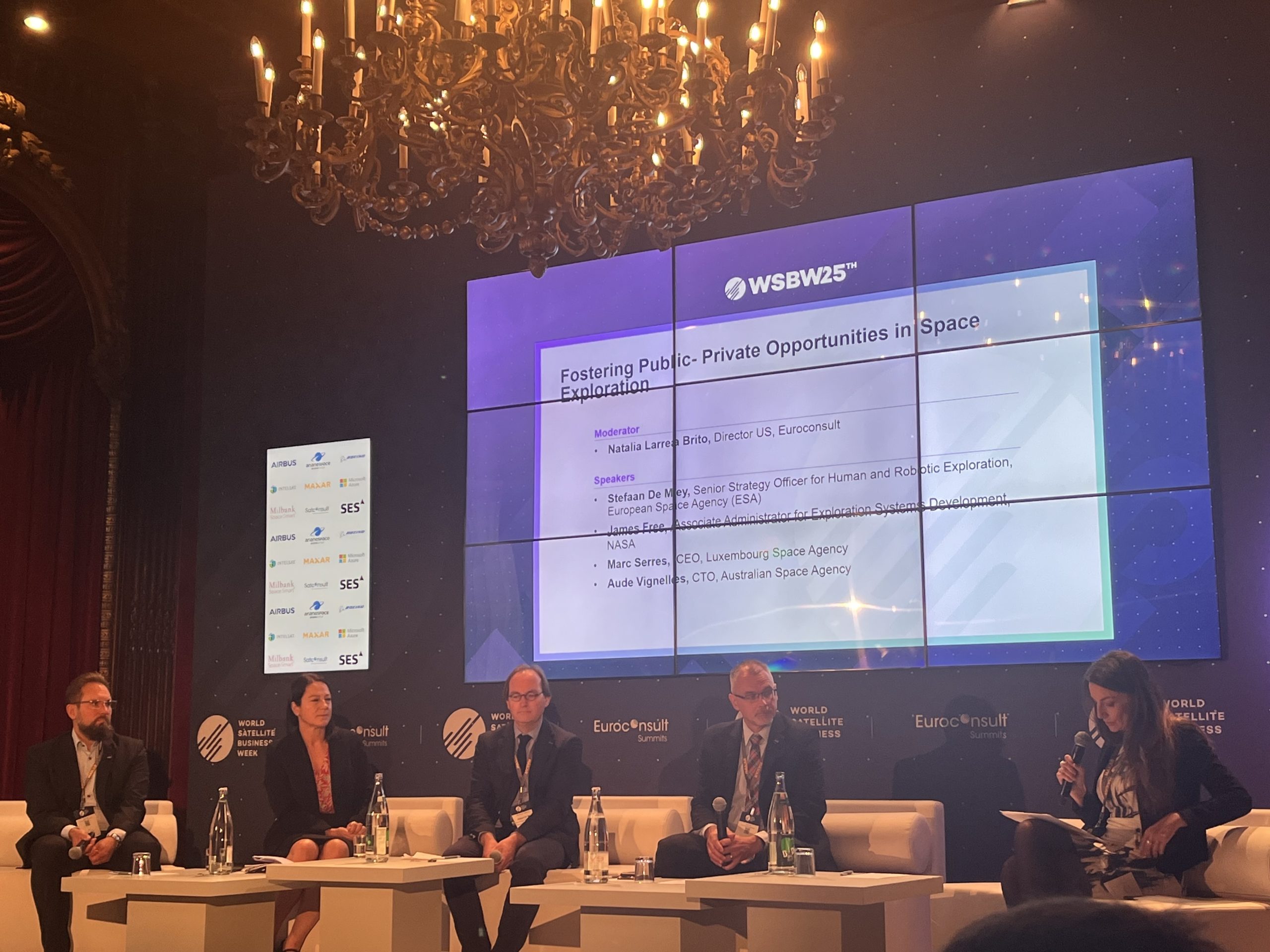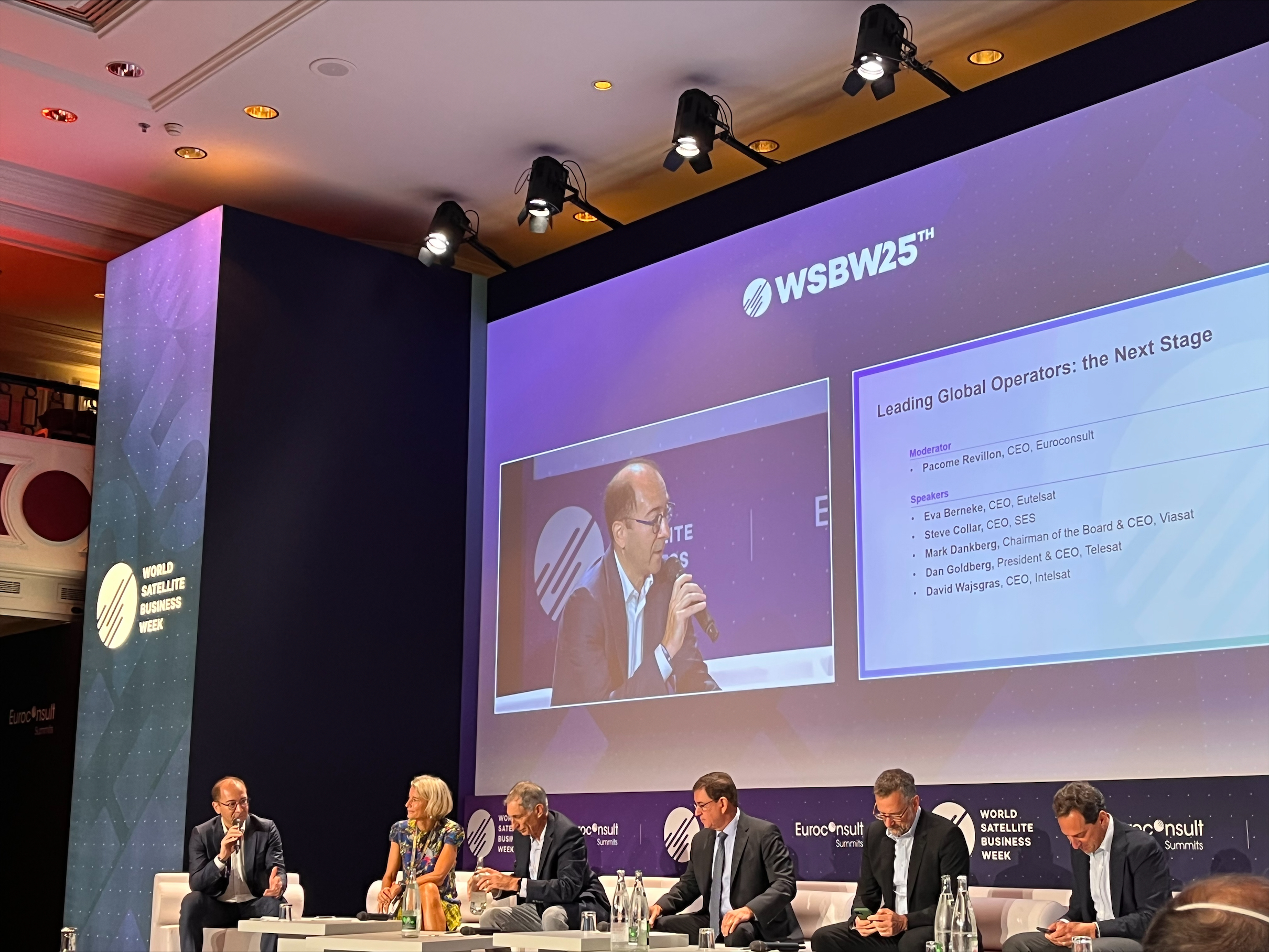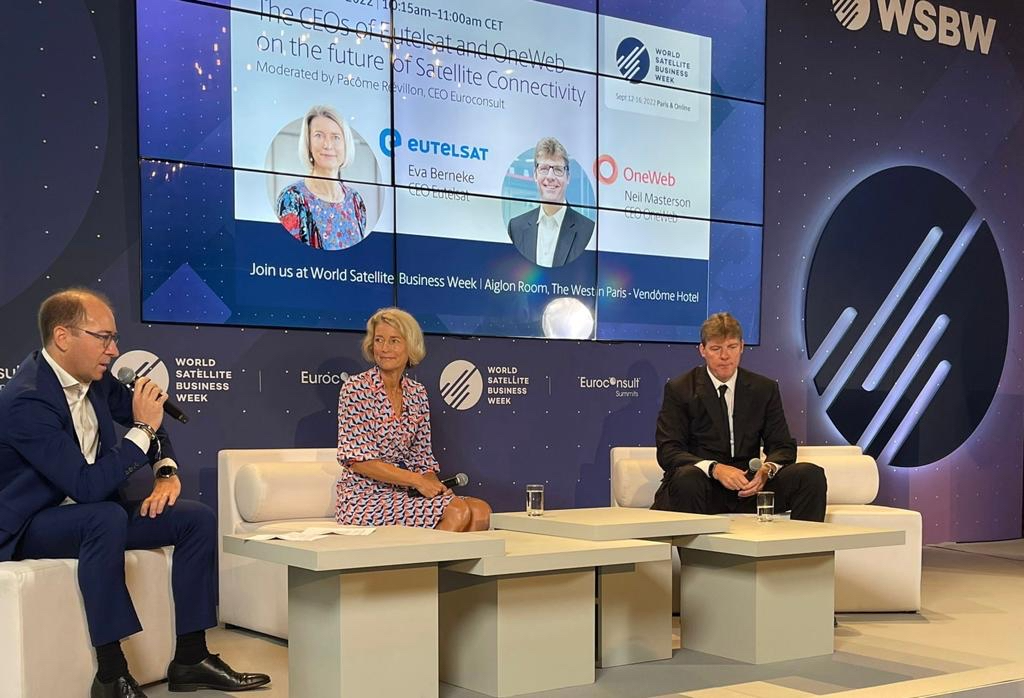Walking around the Westin this morning there were a lot of bleary eyes after the incredible Gala Dinner to celebrate the 25th anniversary of the World Satellite Business Week event. There was delicious food, fantastic entertainment, awards and surprises aplenty, as well as some interesting shapes being thrown on the dance floor, John Clifton I’m looking at you.
Even though I am sure there were a fair few sore heads and aching feet this morning, you wouldn’t know it given the enthusiasm you could feel for the first day of the Earth Observation focused portion of the event.
After a market presentation from Euroconsult’s COO, Steve Bochinger, followed up with an interview with the Undersecretary for Communications and Information Technology for Oman, Ali Amur Al-Shidhani, the day kicked off with a great session with some of the leading operators in the sector discussing their growth strategies for the future.
There were further sessions focusing on how the earth observation will be instrumental in guiding international action on climate change, how ground system as a service solution will create value for the EO sector and how cloud platforms will revolutionise the way we apply analytics and big data solutions to EO data but, unfortunately, after this it was time for the neuco team to get ready to return home.
Thanks so much to the team at Euroconsult, and especially to Emeline Bardoux, for inviting us along and for putting on what seems to be universally agreed to be the best show in the 25 years history of WSBW. Here’s to the next 25!



